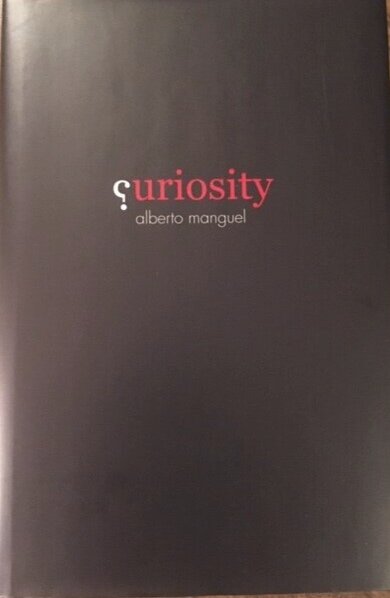A book I had bought years ago, brought home, shelved and forgot about, whispered to me the other morning that it was ready to be read. I obliged. It is called simply Curiosity by Alberto Manguel. I purchased it for the obvious reason that I was curious about what curiosity is, beyond my own understanding.
The author, from Buenos Aires, tells early on of walking home from yet another new school as a youth. He was tired of the same way home so, diverted by the powers of curiosity from his well-grooved pattern, took a side street and soon became lost. He could only offer in retrospect that he did not know why he diverged from his familiar path that day except that “I wanted to experience something new, to follow whatever clues I might find to mysteries not yet apparent” and this led him on an adventure that was less frightening than it was energizing because it exacted a feeling of wonder in him.
He also learned at a young age how reading could provide him untold divergences from the familiar. He realized what many of us have discovered: that reading always seems to include the acts of remembering, revising and renewing what we may have thought was in our lives settled and fixed-in-place for the duration.
As I continue to read his stimulating adventure, I began to consider that curiosity’s constant companion is consciousness itself, a certain degree of intensity to even arouse my wonder about something. Becoming curious, wondering, asking why, who, what is perhaps one of the most valued human gifts we hold and can cultivate in ourselves. When I need a refresher course, I visit our younger son’s family and always strike up a conversation with their older daughter, Eleanor, age 7; she is a wonder-filled child who wants to know why about everything. Her imaginative life is at full throttle right now and her love of learning to read is a consequence of such abundance. She renews my awakening to be curious.
Not wealth but wonder seems to be a signal of true abundance; or, said another way, wonder is one of our delightful forms of wealth. In his Introduction Mangel believes “we imagine in order to exist, and we are curious in order to feed our imaginative desires.”
But then he moves to a discussion that intrigued me further: “Imagination as an essential creative activity, develops with practice, not through successes. . .but through failures. His reasoning may surprise some: “failures force us, if we are curious enough, to try again, to pursue a different tact that may lead to new failures.” My own failures have always pushed me to question what I had been assuming and to revisit what I wish to achieve with a bit more humility.
Our culture has as one of its bumper stickers: “Failure is not an option.” I wonder where this idea came from, an idea that is actually harmful and unrealistic. Of course, learning to fail better runs against this popular and misleading motto.
Failing can actually free us from the fantasies that gather around success in order to imagine more deeply and, depending on the trajectory of our curiosity, lead to unforeseen surprises and new ways of knowing what once seemed so familiar and ordinary.
But to the other side, a question: are there people, things, situations, conditions, or beliefs that we should not only not be curious about, but also not question? To leave these arenas at the doorstep of “It is what it is.”? Maybe. I think, however, that whatever exists we have a right to be curious about, to question; the danger of not doing so can lull us into accepting what, finally, attests to be untrue.
It may be better to fail in our curiosity than to yield to what lacks sufficient veracity.
